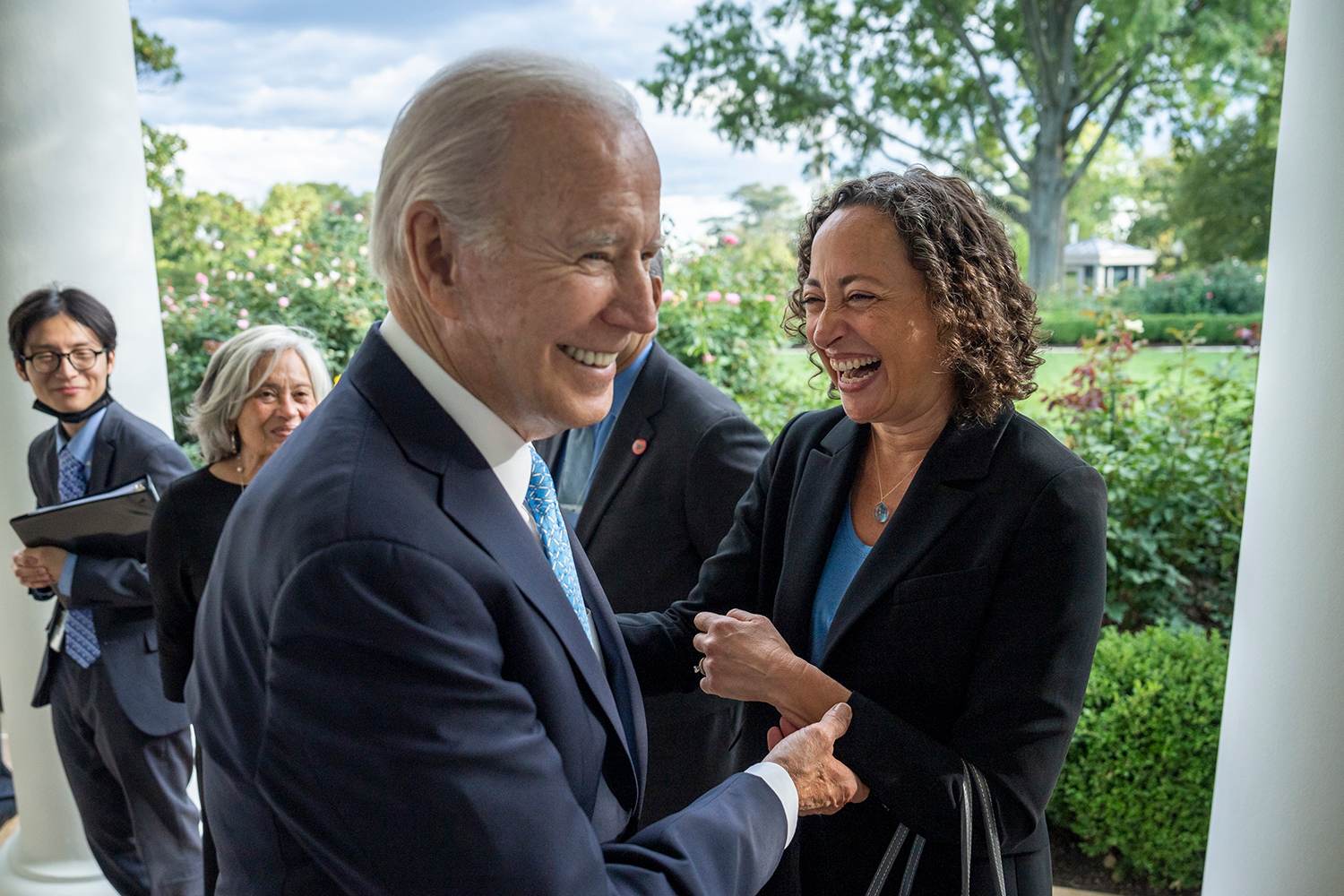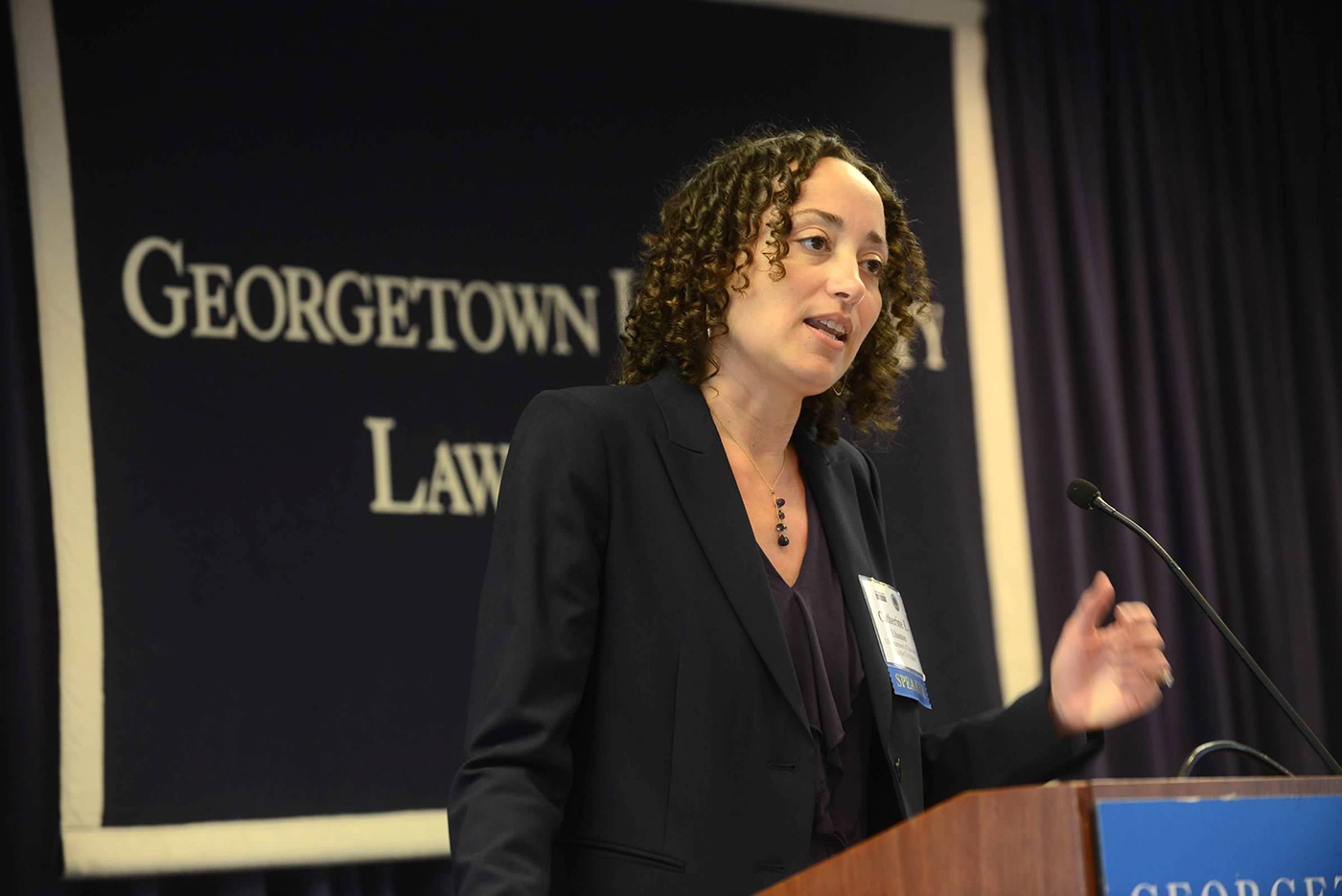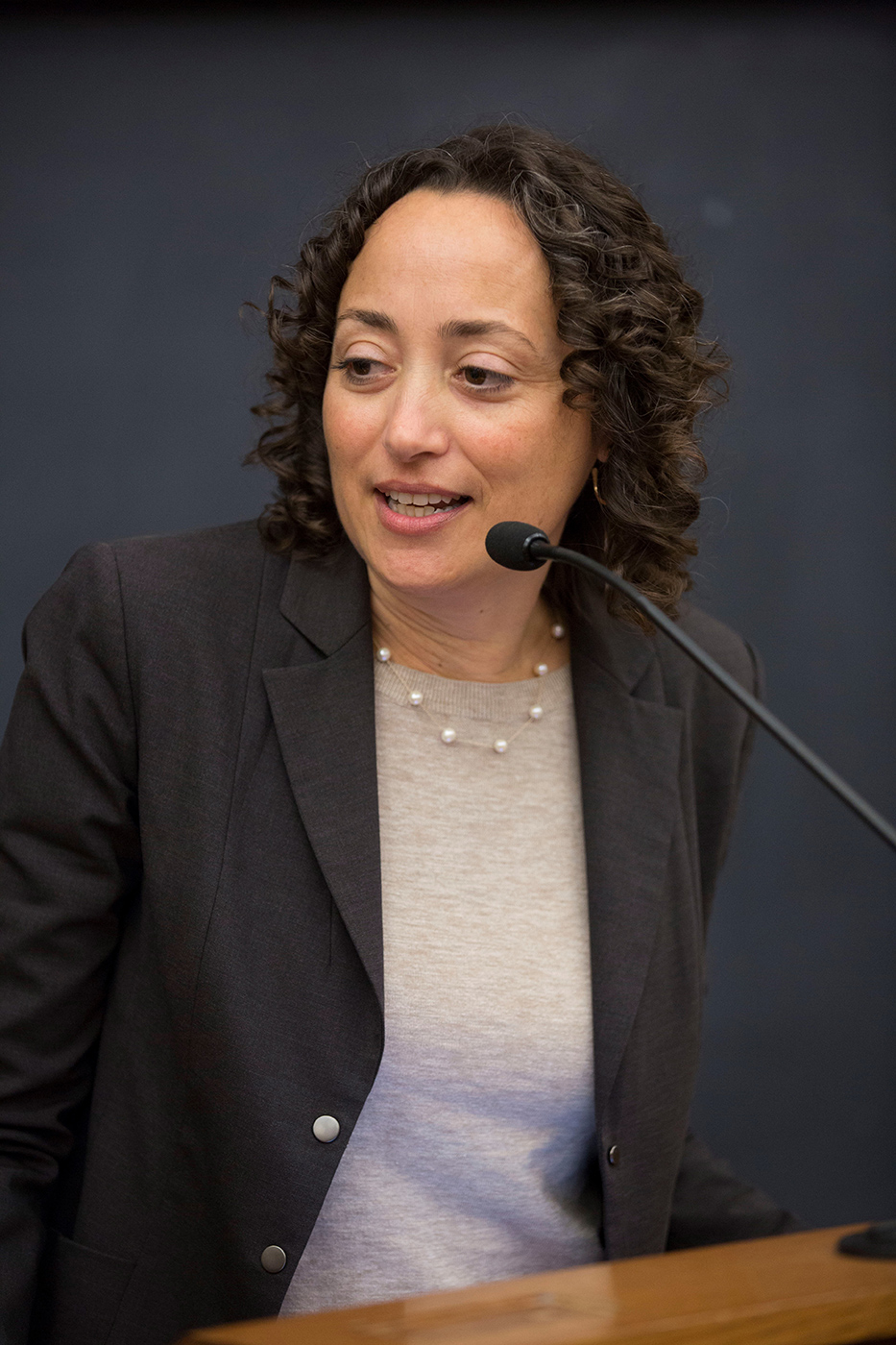
By Andrew Cohen
Every work day while chairing the United States Commission on Civil Rights from 2016 to 2021, Catherine E. Lhamon would walk by a portrait of previous commissioner Christopher Edley Jr.
In June, she will join UC Berkeley Law — where Edley served as dean for nine years — as executive director of the center named in his honor: The Edley Center on Law & Democracy. A mentor to Lhamon before he died in May 2024, Edley was a national leader in pushing for measures to ensure a fair and functional governing system.

“His portrait reminded me then of the important and hard work necessary to develop effective and lasting civil rights policy,” she says. “I hold that reminder still now following our many conversations and shared work.”
Leading President Joe Biden’s domestic equity policy portfolio, Lhamon saw the administration adopt many policy recommendations the commission proposed. They included protecting voting rights, solidifying fair working conditions for people with disabilities, informing better enforcement practices for federal civil rights agencies, and honoring treaty obligations to Native Americans.
Lhamon sees the Edley Center’s creation last year as timely and important given what she calls democracy being tested in “escalating and dangerous ways.” Describing its mission as protecting American democracy “against any and every onslaught” and sustaining it going forward, she expects the center to partner with faculty, students, and across the full university community in courts, during policy reform efforts, and with states.
“I’m eager to work with UC Berkeley Law students in research, policy development, brief crafting, and other advocacy,” she says. “I hope very much that students will be as ready as I am to roll up their sleeves and dig into the work ahead, and I look forward to the force multipliers I know they will be as we build and develop this new center.”
UC Berkeley Law Dean Erwin Chemerinsky says he is thrilled that Lhamon will be the center’s founding executive director: “The Edley Center is vitally important at this moment in time and I cannot imagine a better person to direct it. Catherine has tremendous experience as a public interest lawyer and in high-level government positions. I know that under her direction the Edley Center will make a real difference.”
Ready to lead
Lhamon brings robust experience to her new position beyond the U.S. Commission on Civil Rights. She served as legal affairs secretary in California Gov. Gavin Newsom’s cabinet for two years, operating as general counsel, and also litigated civil rights cases at the ACLU Foundation of Southern California, the National Center for Youth Law, and Public Counsel — America’s largest pro bono law firm. Most recently she was the chief civil rights enforcer in the nation’s schools as the U.S. Department of Education’s Assistant Secretary for Civil Rights.

She has also taught in the Appellate Litigation Program at Georgetown University Law Center, and clerked for U.S. Ninth Circuit Court of Appeals Judge William A. Norris.
“Catherine comes to Berkeley with an unmatched record of public service, having worked in the nonprofit sector and at the top levels of federal and state government,” says Professor Daniel A. Farber, the Edley Center’s co-director. “She is superbly qualified to make the Edley Center a national leader in efforts to preserve and strengthen American democracy and the rule of law.”
Named Yale Law School’s Outstanding Woman Law Graduate in 1996, Lhamon promptly established a successful career. She has been named one of the 50 Thinkers Transforming Politics by Politico, Attorney of the Year for Civil Rights by California Lawyer, and one of California’s Top Women Litigators by the Daily Journal, among several other notable honors.
“Catherine is an icon,” says Christina Chung, executive director of UC Berkeley Law’s Center for Law and Work, who worked with Lhamon in Newsom’s administration. “When she was Governor Newsom’s chief legal adviser, I had the privilege of experiencing firsthand how transformational and brilliant she is.”
“It’s such a tremendous boon to the law school and broader UC community that she will be at the helm of the Edley Center, especially at this inflection point. Students, now more than ever, are yearning for inspirational role models like Catherine, who has dedicated her phenomenal legal career to fighting for the rule of law and the larger public good.”
The center’s role
Leading up to the election, the Edley Center drew packed crowds for a five-part speaker series on American democracy and its intersection with the press and social media, elections and the courts, presidential power, and judicial power. After the election, the center presented programs examining issues such as climate, federal workers, immigration, and reproductive rights.

Noting that lawyers have a professional responsibility to uphold the rule of law and contribute their training and talents to their communities, Lhamon sees law schools as institutional leaders in bolstering democracy.
“Effective law training must include preparation for when — not merely if — we as lawyers will be tested in our ethics and commitments to protecting the rule of law, so we all are ready to fulfill our ethical commitments as lawyers,” she says. “I’ve spent my legal career serving the public good, and working at UC Berkeley Law’s new center strikes me as the most important way I could contribute in this time.”
At Georgetown, she worked with law students and faculty to brief and argue civil rights issues in federal circuit court appeals. At the U.S. Department of Education, she partnered with top lawyers fashioning policy and enforcement responses to difficult civil rights questions facing schools.
“I loved that challenge and more than that loved the justice we could bring to school communities that needed answers,” Lhamon says. “With the Edley Center, our goal is to meet this acutely vulnerable moment in American democracy with an innovative and steady legal response that is sufficient to bring this country to experience — for all of us — our highest aspirations to equality; fair, effective, and responsive governance; and a government that responsibly serves all its constituents.”